In a formally-instituted state policy, the Iranian government bans the Baha’is, Iran’s largest religious minority, from teaching and studying in universities.
Marthalicia Matarrita, a Latina artist from New York City, lives a world away from Iran—but Ms. Matarrita’s artwork connected her with Education is Not a Crime, a street art campaign to raise awareness of the denial of education to Baha’i students in Iran.
Ms. Matarrita was born and raised in Harlem, a historic New York City neighborhood known as a center of African-American and Hispanic life and culture. Because of her own experience struggling with institutionalized injustice as she pursued an education in the city, Ms. Matarrita forged a personal connection with the stories of the Baha’i students for whom she painted a mural on a public school in Harlem.
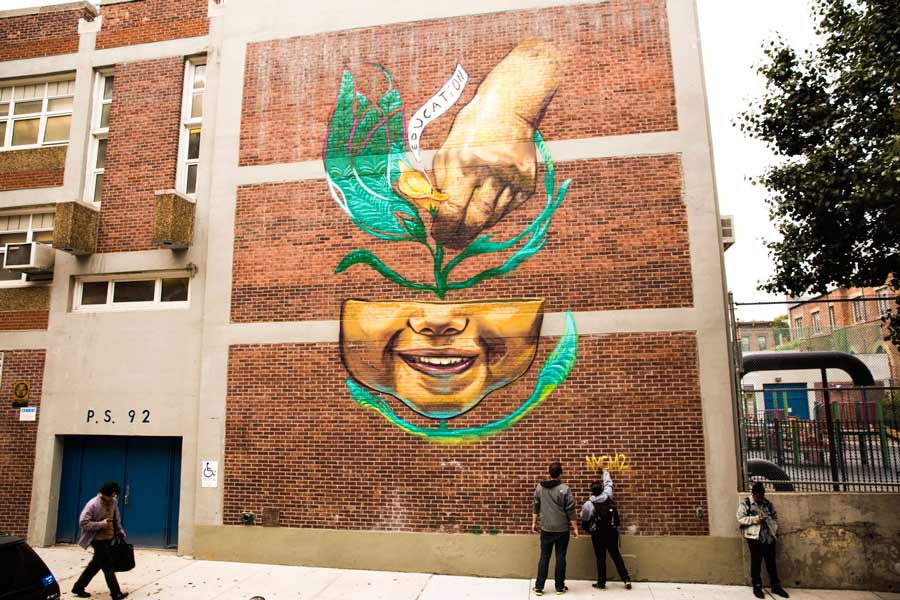
New York-based artist Marthalicia Matarrita’s mural symbolizes the seed that education plants. Ms. Matarrita was born and raised in Harlem, New York.
Her mural—a child and a flower symbolizing the seed that education plants—is just one of many across Harlem and around the world calling for equality through art as part of the Education is Not a Crime campaign.
The new documentary film Changing the World, One Wall at a Time captures the story of this unusual street art campaign and the history of the human rights issue behind it.
Maziar Bahari’s Education is Not a Crime
Education is Not a Crime was started by the Iranian-Canadian filmmaker Maziar Bahari in 2014. Mr. Bahari is not a Baha’i himself, but he has worked to expose the persecution of the Baha’is in Iran for several years, notably beginning with the release of his documentary To Light a Candle in 2014.
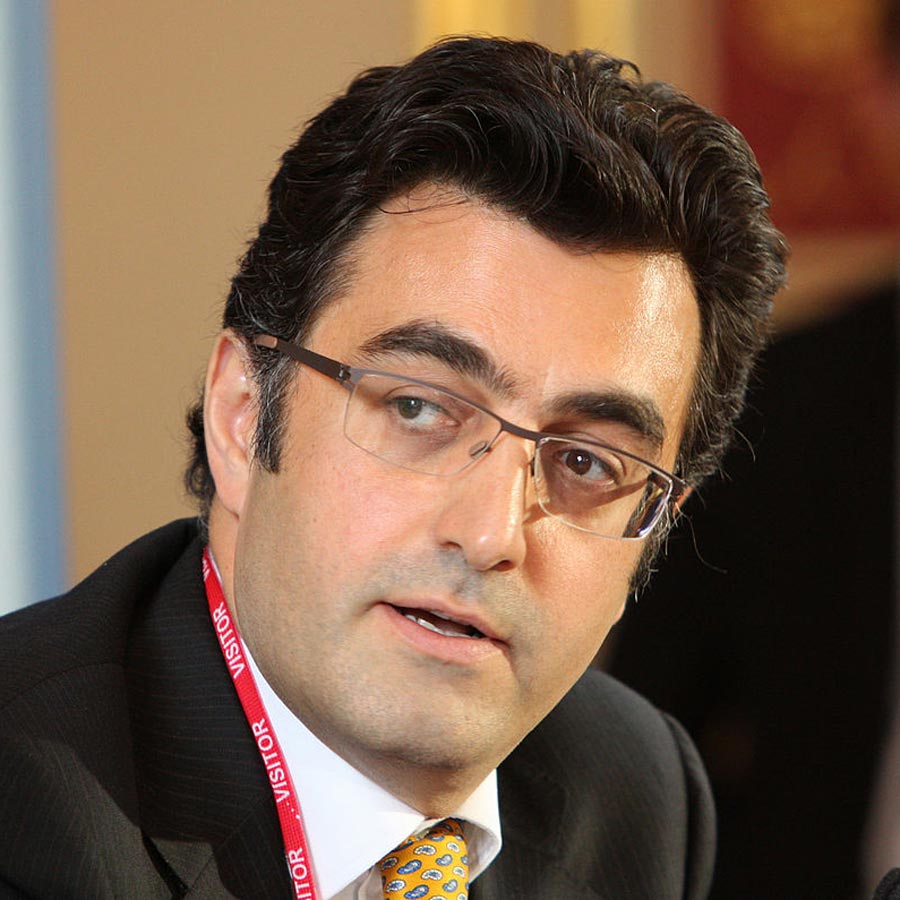
Maziar Bahari
Mr. Bahari’s background and work over the years connected him to the plight of the Iranian Baha’i community. In 2009, he was arrested under the charge of being a spy and imprisoned for four months. His prison experience was profoundly transformational, and upon his release he began to dedicate his life’s work to the improvement of human rights conditions in Iran.
Many human rights activists, including Mr. Bahari, see the Baha’is in Iran as a barometer issue, meaning that if Baha’is are being mistreated, their civil liberties disrespected, and their human rights denied, it’s an indication that the government of Iran is not sincere in its claim to respect the human rights of any groups.
Mr. Bahari’s work, both with the Education is Not a Crime campaign and To Light a Candle, draws attention to the distinctive response of the Iranian Baha’i community to oppression through the Baha’i Institute for Higher Education (BIHE), an informal university program implemented in living rooms and through online courses. Over the last thirty years, BIHE has assisted thousands of Baha’i youth to complete their education in a number of fields. Many students have continued onto their masters and doctorate programs at well-known universities around the world, which have accepted its graduates for further studies. This effort follows the core Baha’i principle that calls for the education of all people:
The education and training of children is among the most meritorious acts of humankind and draweth down the grace and favour of the All-Merciful, for education is the indispensable foundation of all human excellence and alloweth man to work his way to the heights of abiding glory. – Abdu’l-Baha, Selections from the Writings of Abdu’l-Baha, p. 129.
Raising consciousness through street art
Denial of education in Iran is a human rights issue. Street art may not be the most obvious choice for raising awareness about such a topic, but its uncommon nature is one of the reasons why the campaign has been so successful, said Saleem Vaillancourt, the coordinator of Education is Not a Crime.
“Essentially, as far as human rights in Iran are concerned, the automatic audience is probably already saturated. Everybody who is going to know about it knows about it,” said Mr. Vaillancourt. “So it’s about finding people who don’t know about the denial of education to Baha’is in Iran, but who care because they care about education, or religious freedom, or things like the arts, or they care because they connect with the issue on a personal level.”
The campaign, while global in reach, had a particular focus in Harlem because of the community’s response to the message about access to education. Initially, this response surprised the campaign, said Mr. Vaillancourt.
“We would go into the neighborhood and say, ‘We’re painting these murals because there’s this group of people in a country far away and something you’ve never heard about is happening to them.’ And it was honestly a very convoluted attempt to explain what we were doing and why we were doing it. But in Harlem, people understood very quickly. They would say, ‘Yes, education is important, and people in our community have been denied it too,’” said Mr. Vaillancourt.
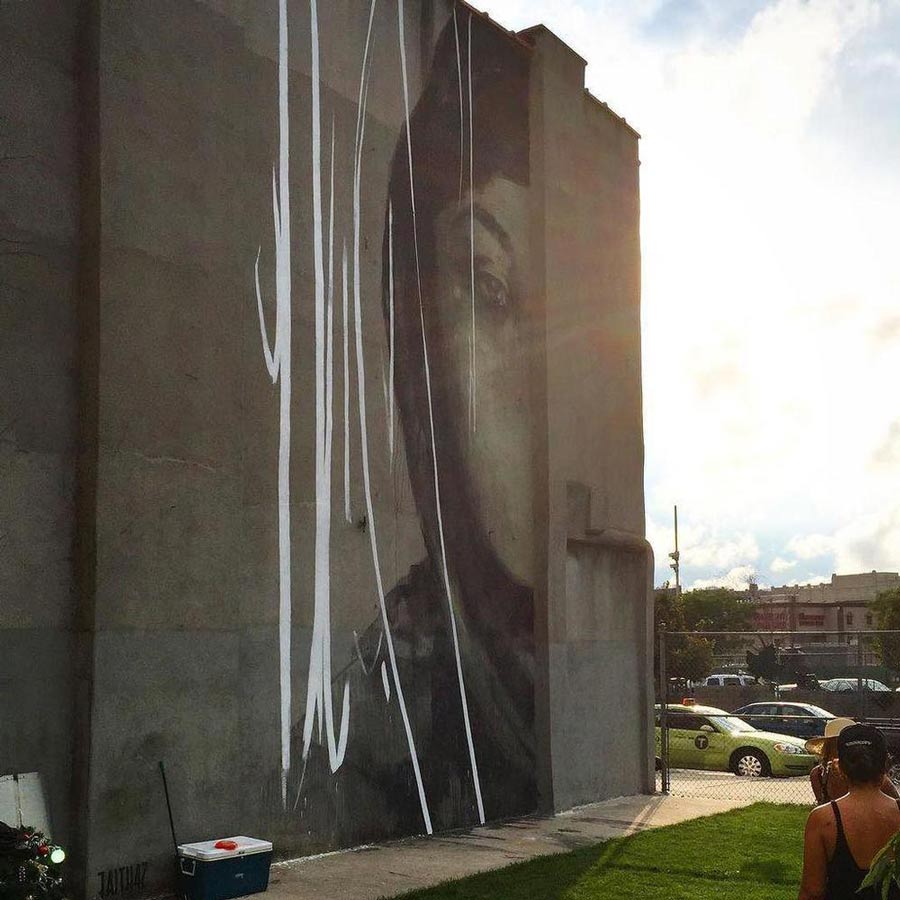
This mural by South African artist Faith47 is a portrait of Atena Farghadani, an Iranian artist and activist, who was sentenced to 12 years in prison in 2015
This response to the campaign was not limited to Harlem—around the world, Education is Not a Crime has touched very diverse populations. In South Africa, the murals painted in Cape Town and Johannesburg created a parallel between the persecution of the Baha’is in Iran and apartheid. The mural painted in New Delhi, India, evoked the long-ingrained caste system, illustrating education as the way to move beyond prejudice.
“Street art acts as a social equalizer in a country such as India with huge economic disparities,” said Harsh Raman, the artist of the mural in New Delhi. “You can be rich or poor, but everyone can enjoy public art and is free to have their own interpretation of it. It’s art for everyone but can be owned by no one.”
The film: Changing the World, One Wall at a Time
The team working with Education is Not a Crime combined the analog format of murals with the digital nature of sharing videos and pictures of the campaign online to create a dynamic message that reached people all around the world. Changing the World, One Wall at a Time evolved from the shorter videos that were posted and shared from the early days of the campaign.
The worldwide nature of the campaign is reflected in the film, featuring interviews with the artists involved, as well as members of communities around the world reacting to the art on the walls of their buildings.
“The film was this amazing opportunity to tell the story of these artists and their innovative, artistic responses to the issue. It was an opportunity to put, for example, an Iranian Baha’i and an American Latina woman together to share their commonalities and understand the different ways they overcame the problems in their lives,” said Mr. Vaillancourt. “It was just an extraordinary bringing together of pieces.”
The Changing the World, One Wall at a Time world premiere happened in Harlem on 5 May 2017. It will premiere in Los Angeles this Monday, 5 June at Raleigh Studios (details and tickets are available online). Information on other screenings can be found on the Education is Not a Crime website. The release of the documentary online is anticipated in several months.


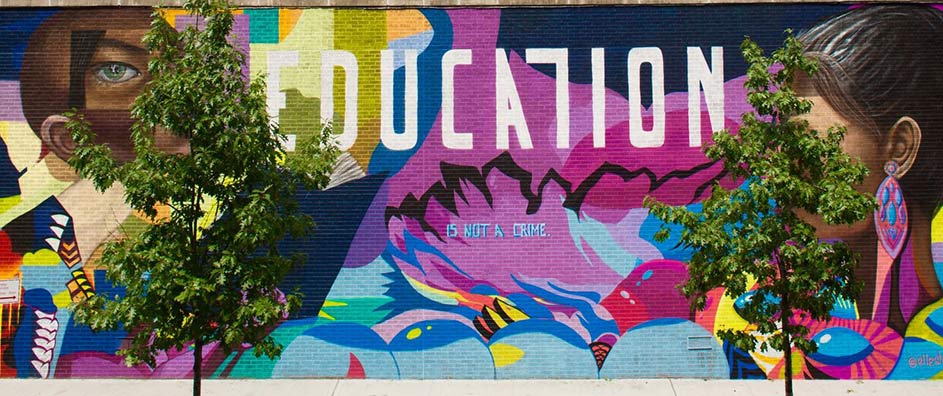

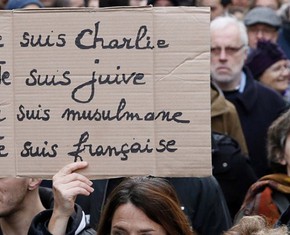

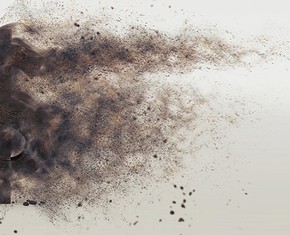









Comments
Sign in or create an account
Continue with Googleor